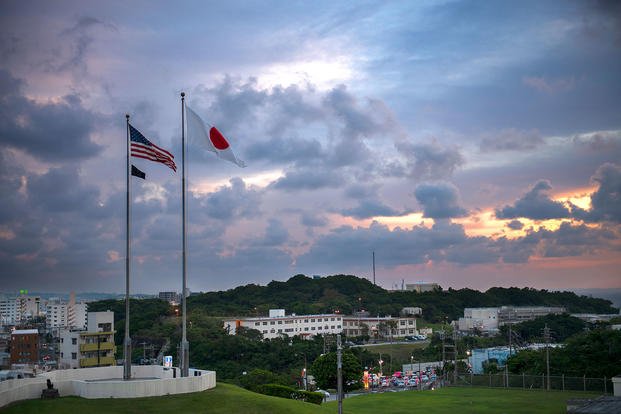Lawmakers are pressing the Pentagon to improve medical care in Japan for U.S. military personnel, families and Defense Department civilians amid ongoing concerns that the lack of access to care is forcing service members and federal civilian employees to leave the country.
The move follows efforts initiated last October by U.S. Indo-Pacific Command and the Defense Health Agency to improve emergency medical services for Americans covered by a Status of Forces Agreement with Japan.
In a letter to the assistant secretary of defense for health affairs and director of the Defense Health Agency, the bipartisan group that includes the chairwoman of the Senate Armed Services Committee's personnel subcommittee said the issues have not been resolved.
Read Next: The Marine Corps Completed Its Force-Wide Barracks Inspection. Here's How it Went.
"We appreciate the steps that DHA and INDOPACOM are taking to address these issues. But we continue to be concerned by reports of problems accessing care, and its impact on morale and retention," wrote Democratic Sens. Elizabeth Warren of Massachusetts and Tim Kaine of Virginia, and Rep. Michael Burgess, R-Texas.
They cited examples of teachers who have left their positions at Department of Defense Educational Activity schools and a child clinical psychologist who served military families but had to leave Japan after not receiving timely care for an injury. The psychologist's departure, expected late last year, according to the DoD inspector general, left just one pediatric psychologist in the country to serve military and civilian dependents.
"These numerous reports of problems accessing care show its negative impact on morale and retention, and degrades our nation's readiness," the lawmakers wrote.
U.S. Forces Japan is home to roughly 54,000 U.S. military personnel, 45,000 military family members, and 8,000 Defense Department civilians and contractors.
In December 2022, the Defense Health Agency announced it would treat civilian U.S. employees in military hospitals and clinics in Japan on a space-available basis only and directed those patients to receive medical treatment from local providers if they could not be accommodated.
Following a backlash to the announcement, the DHA clarified its policy, announcing that civilians could continue to receive treatment for chronic conditions at military hospitals but said appointments for acute care would remain on a space-available basis.
Months later, U.S. military medical staff at Kadena Air Base began preparing to send pregnant service members, spouses and dependents out of the country to deliver their babies as a result of severe staffing shortages at Naval Hospital Okinawa. The diversions never came to pass but not before eight DoD civilians requested their assignments be cut short as a result of medical concerns.
A November 2023 DoD inspector general report found significant challenges for using off-base medical resources, such as language barriers, differing approaches to medical care and the lack of availability of certain medications.
In their letter, the lawmakers said they have received complaints as recently as the last few months, and they want to know what steps the DoD is taking to solve the problems.
They cited the military health system's new strategic plan, published in December, that said the DoD needs to stabilize the system, improve military and civilian staffing, and increase readiness.
"We seek to learn how and when DoD will implement the MHS Strategic Plan and the DoD IG's recommendations, and address ongoing problems with access to health care in Japan and the INDOPACOM region," they wrote.
In an interview with Federal News Network in November, DHA Director Lt. Gen. Telita Crosland said the agency had "worked through the challenges" of meeting health care demands for civilian employees in Japan and would have a new network structure in place by the end of 2024 that would address the issues.
"'We've unencumbered them to support the 'space-A' population on the same footing they'd previously supported them. We said, 'We really do have some capacity; let's maximize our capacity for all beneficiaries,'" Crosland said.
Navy Adm. John Aquilino, who leads U.S. Indo-Pacific Command and wrote the order to improve medical staffing in the country, is expected to testify Thursday before the Senate Armed Services Committee.













